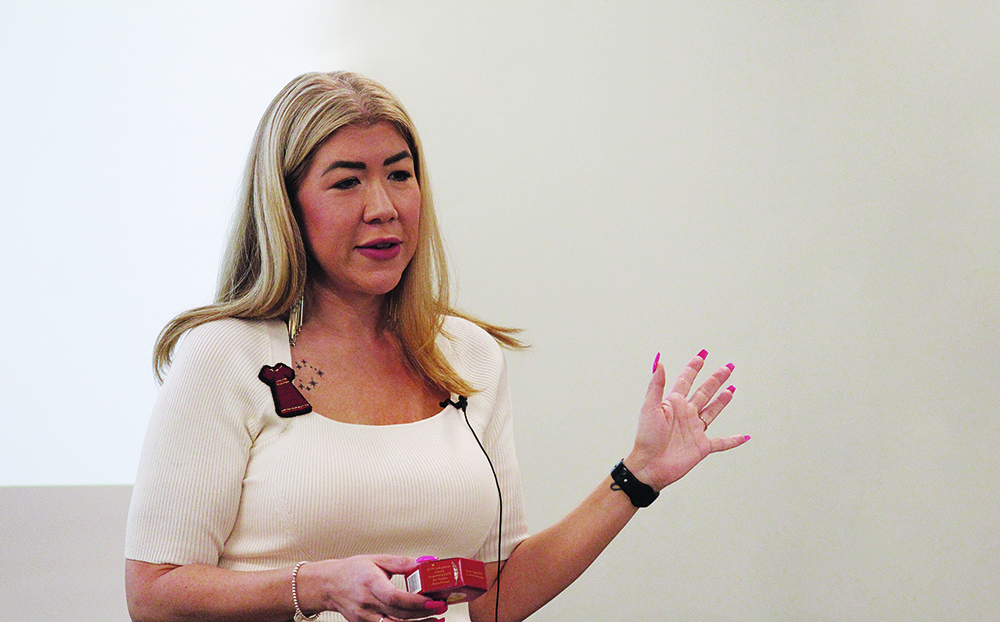
When Kirsty Muller [BN/14] was in her final year of nursing studies at UM, she was not looking forward to her practicum in mental health.
“I grew up surrounded by a lot of mental health issues, and I just thought it was something I would not enjoy in my work life,” she says. “But by the second day of my clinical placement, I knew it was where I was meant to be.”
Muller went on to dedicate her nursing career to mental health, eventually narrowing her focus to addictions and harm reduction.
“I’ve lost a lot of people close to me to addiction and mental health challenges. I want to help families and community members through this. I call it my ‘heart medicine.’”
Muller, a member of Hollow Water First Nation, was raised in Winnipeg by her mother, a licensed practical nurse. She started nursing school herself at age 30.
Today, Muller manages an opioid agonist therapy program in Red Sucker Lake, Man., through Four Arrows Regional Health Authority. In this form of harm reduction, people who are dependent on opioid drugs are prescribed a replacement medication.
The same program provides access to services such as counselling, pregnancy support and primary care. “We’re a gateway for many avenues of care,” Muller says.
One of Muller’s proudest accomplishments came in 2020, at the height of the COVID-19 pandemic, when she worked with two Indigenous health organizations to develop a managed alcohol program in Shamattawa First Nation.
Managed alcohol programs, which operate at shelters in many Canadian cities, dispense regular doses of alcohol to people with severe alcohol use disorder. This harm-reduction approach helps people to stabilize and consume safely.
In the remote fly-in community of Shamattawa, Muller remembers, the COVID test positivity rate was at about 50 per cent. Despite it being a dry community, the nursing station was being overrun with people who, without access to their usual channels for alcohol because of COVID, were going into acute withdrawal.
A plan was quickly developed, and Muller arrived with a plane full of prescribed alcohol.
“I would visit these community members’ homes twice a day, talk to them, assess their withdrawal score and give them their dose of alcohol, which they would consume in front of me. Some would also be given a dose to take later.”
Within a week, she says, the nursing station was able to focus more on patients with COVID. “The program continued for 10 months, and some participants were able to wean themselves off alcohol.”
With her personal and professional expertise in addictions, Muller is in demand. In 2023, she was part of a team that opened Canada’s first Indigenous-led Rapid Access to Addictions Medicine clinic in Winnipeg.
She is the first registered nurse to serve as Manitoba’s regional director for the Canadian Society of Addiction Medicine. She also holds board and consultant roles that enable her to advocate for people with addictions.
Acknowledging that programs offering prescribed alcohol or opioid replacement are controversial, Muller stands firmly behind them.
“I have seen first-hand that lives can be changed with harm reduction, non-stigmatizing care, kindness, and equitable access to health services and medication.”
BY ALAN MACKENZIE
